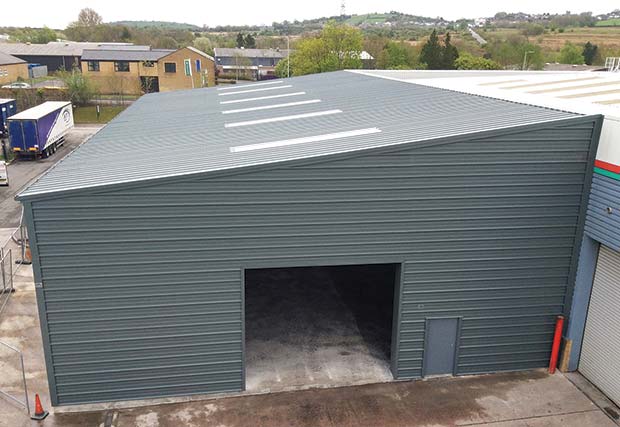One of the UK’s leading manufacturers and installers of temporary buildings has voiced concerns that transport and logistics companies requiring additional space may be being inadvertently misled into ordering the wrong type of structure.

Antony Hunt, MD of Smart- Space, believes his industry’s terminology – or rather the lack of it – is at the root of the problem. The consequence can be short-term, relocatable structures being used for longer-term projects, for which they are inherently unsuitable.
The results, he says, are installations that fail to meet the requirements of the customer and which fail to achieve the planned enhancements to the customer’s operation.
“Many people ask for a temporary building when, in fact, it’s not a temporary building they want at all. What they actually want is a quick, cost-effective alternative to a traditional building. The lack of clear definition between the options open to them causes the issues.”
In mainland Europe, relocatable temporary buildings are known as industrial tents. Hunt says that phrase conjours up an image of sagging canvas and really doesn’t create a positive image in the mind of the customer. As a result, it’s a description which has never been widely used or accepted in the UK, although its adoption would help to avoid customer confusion and inadvertent mis-selling.
“Some manufacturers only supply industrial tents, which are relocatable temporary structures with a PVC fabric roof cover,” says Antony. “But they offer them as a solution for supply chain facilities requiring longer term, semipermanent structures with more stringent temperature and safety requirements, or as an alternative to permanent buildings.
“That can be very misleading. Sometimes the customer gets a long way into the project before realising the solution is the wrong one – and that’s not good either for them or for their supplier.”
In mainland Europe, the ‘industrial tent’ remains in common parlance, leaving nobody in any doubt as to the very temporary nature of the construction.
“It’s the right description for that kind of structure, and it is ideal for customers who want to hire a shortterm off-the-shelf modular solution.
However, it’s unlikely to be the right solution for longer-term, semipermanent or permanent use, such as extensions to warehouses or a new workshop development.
“If you’re looking for a building which is totally watertight and insulated, which conforms to building and fire regulations, and which may be in place for decades rather than months, then a madeto- order steel-clad building is far more likely to be the right choice.”
For businesses who want something more than an industrial tent, but not the capital outlay of a bespoke-made permanent building or extension, Smart Space highlights another option which sits right in the middle of the two.
Interim buildings bridge the gap between temporary and permanent buildings because they use the same modular off-the-shelf aluminium frame system as the industrial tents, with the added advantages of a 40mm steel roof and 40mm steel wall cladding. They look, last and perform like a permanent building but are available for rental, so give the customer far more flexibility in terms of the period of use.
For anyone considering a temporary, semi-permanent or permanent structure, Smart-Space has drawn up a straightforward guide to making the right decision, which is available free of charge at bit.ly/22pQTZw.
“Opting for an industrial tent or something more substantial will depend on a number of factors specific to the business. Taking them all into consideration, and knowing the difference between the available options, will ensure the transport or logistics company’s first decision is the right decision.”




Comments are closed.